Gaza War: A preliminary balance sheet
November 22, 2012 at 8:38 pm | Posted in democracy, Human Rights, International Relations, World Politics | Leave a commentTags: Egypt, European Union, Gaza, Human Rights, international relations, Israel, Middle East, Palestine, Qatar, Russia, Syria, Tunisia, Turkey, United Nations, United States, West Bank, world politics
Israel’s eight-day assault on Gaza caused enormous damage to the physical infrastructure of that impoverished coastal strip and a vastly disproportionate human toll on the Palestinians. Yet, in a preliminary balance sheet, Hamas is a clear winner. Long shunned by the European Union, Israel, and the United States, it has now emerged as a legitimate player. its rival–the Palestinian Authority–was completely sidelined with its foreign minister forced to visit Gaza with an Arab League delegation! The Palestinian Authority’s President Mahmud Abbas did not visit Gaza at all in contrast to the Egyptian Prime Minister and the Tunisian Foreign Minister. Four years ago, when the Israeli’s had launched their last assault on Gaza, the Palestinian Authority had prevented demonstrations in support of the people of Gaza on the West Bank: this time it could not hold back support for Gaza. It was able to launch rockets to Tel Aviv and Jerusalem that even the more militarily capable Hezbollah had not contemplated when Israel invaded Lebanon. Hezbollah, itself, by continuing to back Syria’s Bashar al-Assad who is engaged in a murderous internal war to retain his position, has also lost considerable legitimacy in the Arab street. Conversely, on this register too, Hamas by distancing itself from the Syrian regime and moving its headquarters from Damascus to Qatar, emerges stronger.
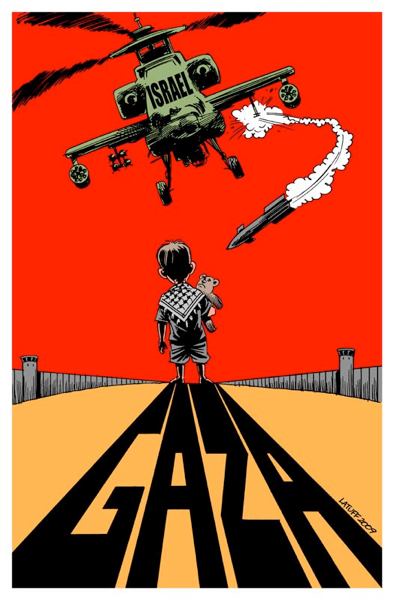
In the deliberately ambiguously worded ceasefire negotiated by Cairo and Washington, none of the terms insisted by the Quartet–the US, the EU, Russia, and the United Nations—that Hamas renounce violence and recognize Israel in return for an engagement were mentioned. Instead, the ceasefire agreement accepted, however vaguely, Hamas’ central demands that targeted assassinations of individuals be stopped and that the border crossings be opened to the free movement of goods and people has been accepted. Whether these agreements will be implemented remains to be seen of course.
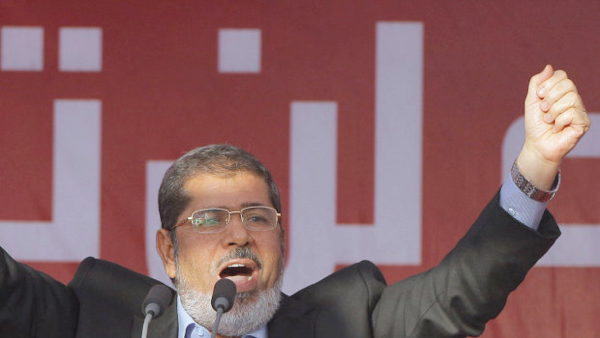
Egypt’s newly elected president Mohamed Morsi has emerged as a key regional power weight. less than 48 hours after the Israeil bombardment, he dispatched his prime minister, Hesham Kandil, to Gaza in a show of support and pointedly condemned Israeli aggression. When the United States continued to unflinchingly support Israel, and refusing to engage Hamas, and with Turkey’s prime minister, Recip Tayyip Erdogan, having cut his ties to Israel, Morsi was the only credible interlocutor capable of negotiating a ceasefire. In fact, emboldened by his role in the Gaza ceasefire, Morsi has flexed his political muscle domestically: conferring on himself extensive powers and immunity from judicial overview.
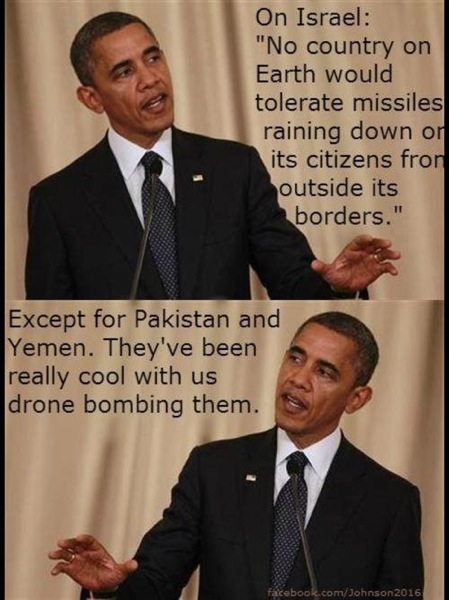
Cementing Hamas’ role as a legitimate regional power has been a defeat for the United States. Once again, as the Israeli assault on Gaza began, President Barack Obama said he “fully supported israel’s right to self-defense” and both houses of Congress passed lopsided resolutions in favor of Israel. Yet, as even the Economist magazine indicated the casualties have been disproportionate.
- Number of Israelis killed by fire from Gaza between January 1st 2012 and November 11th 2012: 1
- Number of Palestinians in Gaza killed by Israeli fire during the same period: 78
- Number of Israelis killed by fire from Gaza, November 13th-19th 2012: 3
- Total number of Israelis killed by rocket, mortar or anti-tank fire from Gaza since 2006: 47
- Number of Palestinians in Gaza killed by Israeli fire from April 1st 2006 to July 21st 2012: 2,879
- Number of people killed in traffic accidents in Israel in 2011: 384
Unable to deal directly with Hamas with which it has no formal engagement, the United States was forced to deal with them through Morsi and thus for the first time in the long history of Israeli occupation of Palestine, the ceasefire was announced in an Arab capital!
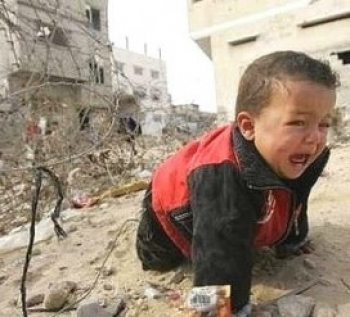
Israeli Prime Minister Binyamin Netanyahu may have thought that another attack on Gaza, less than two months before an election, would have bolstered support for him. But continued international pressure, and the impossibility of stifling Gaza resistance to Israeli oppression compelled him to agree to a ceasefire. A poll found that more than 70 percent of those polled in Israel were opposed to the ceasefire, signaling possibly that Netanyahu had badly miscalculated his pre-election war strategy. No doubt, the US will fund a large part of the costs of the Israeli assault: each interceptor missile fired by its Iron Dome system costs $62,000 and each of the 5 Iron Dome batteries cost $50 million and it plans to deploy a total of 13 batteries. This cost will undoubtedly be borne by the American taxpayers–given the US Administration and Congress’ unconditional support for Israel.
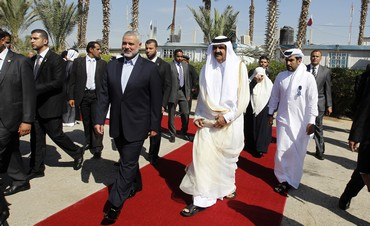
Aid from Qatar and other Arab states–in October 2012, the Emir of Qater was the first head of state to visit Gaza since the tiny coastal enclave was turned into an open air prison by Israel in 2007–will help rebuild its arsenals and the infrastructure, along with of course support from Iran. Moreover, even as Israeli missiles and air-strikes may have devastated its weapons factories and arsenals, by bombing buses, Hamas has reminded Israeli leaders of its extraordinary resilience.
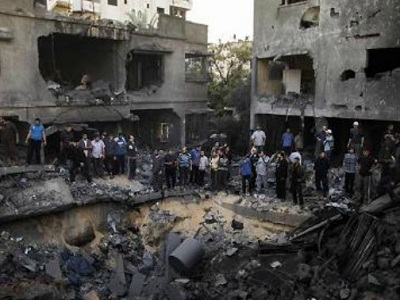
In any preliminary assessment of the Israeli assault on Gaza, Hamas and Morsi have emerged as winners, though at a terrible cost to the people of Gaza–another thing that Netanyahu has to answer for.
Western Imperialism, Libya, and the Arab Revolts
March 22, 2011 at 3:42 am | Posted in democracy, International Relations, World Politics | 3 CommentsTags: France, Global South, India, international relations, interstate system, intervention, Iran, Iraq, Kosovo, Libya, Middle East, North Africa, Persian Gulf, Qatar, Serbia, United Arab Emirates, United Kingdom, United States, US hegemony
The United States and some of its European allies have once again launched an attack against a state in the Global South–this time as a humanitarian intervention to prevent Colonel Muammar Gaddafi from ‘slaughtering’ his opponents in Libya, and backed by a United Nations Security Council resolution and a resolution by the League of Arab States. Strikingly, none of the combatant governments–the United States, Britain, France, or the lesser European powers–sought legislative approval for before launching missiles and war planes against Libya. For an assault against a third-rate military power, it seems such democratic niceties need not be observed.
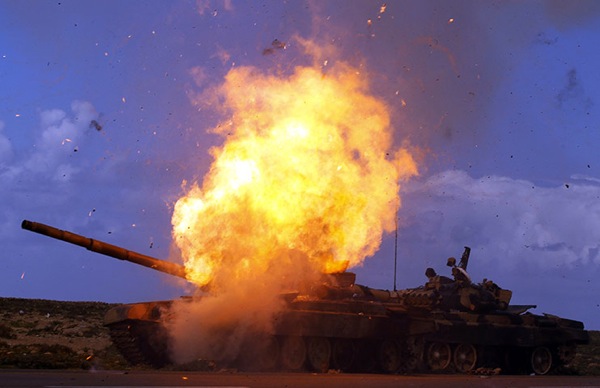
Even if it was a foregone conclusion that their national legislatures would have supported the assault against Colonel Gaddafi’s forces–as the British House of Commons did by a lopsided margin–this was largely due to a blanketing of other options in the mainstream media which made no mention of the ad hoc commission established by the Peace and Security Council of the African Union to mediate between the Colonel and his opponents. Equally importantly, in the absence of a detailed debate, there has been little planning on what would happen were a stalemate to develop–a possibility that Admiral Mike Mullen, the Chairman of the US Joint Chiefs of Staff admitted was a real possibility–or in a post-Gaddafi Libya
Indeed, this is hardly a war against Libya. The superiority of the United States in the air is so overwhelming that as Tom Englehardt has noted there is no element of danger for the pilots of US planes who last faced a serious threat in Vietnam in the early 1970s. The Serbian air force did not even bother to take to the air in the war over Kosovo, and in the First Gulf War, the powerful Iraqi air force flew most of its planes to Iran rather than engage with the US-led forces. For American pilots it is as safe to bomb another country as it is to pilot drones over Afghanistan from the Creech Air Force base in Nevada where “those leaving [the base] pass that warns them to “drive carefully” as this is “the most dangerous part of your day”!
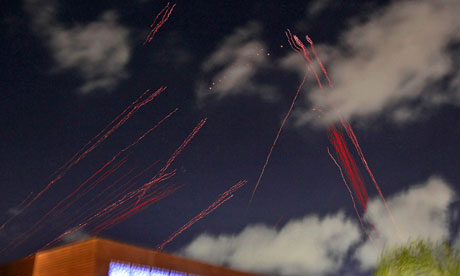
With the absence of any danger to US pilots, this resembles colonial wars where well-armed European troops mowed down with their repeater rifles hordes of native warriors armed only with spears and bows and arrows. Once American planes have taken out all Libyan air defense systems, British and French planes will enforce a no-fly zone, again at no risk to themselves. Underlining the suspension of the ordinary calculus of war, President Barack Obama embarked on his previously scheduled tour of three South American states even as his planes and missiles were pounding Libya.
For NIcolas Sarkozy of France, after the right wing Front National led by Marine Le Pen made historic gains in the first round of municipal elections, an image as a ‘war President‘ may just be the thing to propel him to victory in next year’s presidential elections–damn the consequences for Libyans, in true imperialist tradition!
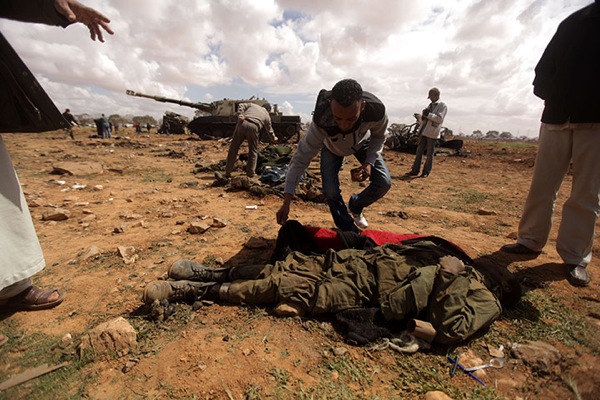 But the sheer ferocity of the assault is causing anguish even among those who initially called for the imposition of a no-fly zone. Though the League of Arab States had called for the imposition of a no-fly zone, images of the carnage wrought by missiles and bombs led its Secretary-General Amr Moussa to say after the second day of air strikes: “what is happening in Libya differs from the aim of imposing a no-fly zone, and what we want is the protection of civilians and not the bombardment of more civilians.” Intense pressure however made him back-track, despite widespread revulsion in the Arab world at the carnage sustained by Libyan civilians. Nevertheless, only two small states–Qatar and the United Arab Emirates–among the 22-member states of the League have agreed to take part in war effort. Russia and China which abstained from the Security Council vote have voiced concerns about the attacks and India, which also abstained from the Security Council resolution, became the first country to call for a cessation of air strikes.
But the sheer ferocity of the assault is causing anguish even among those who initially called for the imposition of a no-fly zone. Though the League of Arab States had called for the imposition of a no-fly zone, images of the carnage wrought by missiles and bombs led its Secretary-General Amr Moussa to say after the second day of air strikes: “what is happening in Libya differs from the aim of imposing a no-fly zone, and what we want is the protection of civilians and not the bombardment of more civilians.” Intense pressure however made him back-track, despite widespread revulsion in the Arab world at the carnage sustained by Libyan civilians. Nevertheless, only two small states–Qatar and the United Arab Emirates–among the 22-member states of the League have agreed to take part in war effort. Russia and China which abstained from the Security Council vote have voiced concerns about the attacks and India, which also abstained from the Security Council resolution, became the first country to call for a cessation of air strikes.
The role of the League of Arab States also appears compromised. First, Robert Fisk reported that Washington had asked Saudi Arabia to furnish arms to the rebels in Benghazi to which King Abdullah, facing his own problems, had failed to respond even though he loathes the Libyan leader who had tried to have him assassinated just over a year ago. Then the Wall Street Journal reported that with Washington’s encouragement and knowledge, the Egyptian military had begun to slip arms to the rebels. This raises the question of whether the post-Mubarak regime is going to play the role of another Western puppet–indeed Amr Moussa sudden back-tracking of his condemnation of the killings of civilians in the Western air raids gives no assurance of an independent regime emerging from the ashes of Mubarak’s autocracy. Indeed, it may well be that as Ali Abunimah wrote in the Electronic Intifada: “The greatest danger to the Egyptian revolution and the prospects for a free and independent Egypt emanates not from the baltagiyya–the mercenaries and thugs the regime sent to beat, stone, stab, shoot and kill protestors in Cairo, Alexandria and other cities– but from Washington.”
Many of the commentators who support the assault against forces loyal to Colonel Gaddafi suggest, even if grudgingly, that only the Western powers have the means to stop his slaughter of his opponents. This is not only to conveniently forget that the Colonel has ruled Libya with an iron hand but also that after he agreed to give up his weapons of mass destruction and join the war on terror, Western powers cosied up to him for lucrartive arms and oil contracts.
It is also to ignore that the African Union had opposed military intervention in the Libyan conflict and that the AU’s own ad hoc commission which Colonel Gaddafi had agreed to meet was not permitted to work as Western military intervention effectively ruled out a peaceful resolution of the conflict.
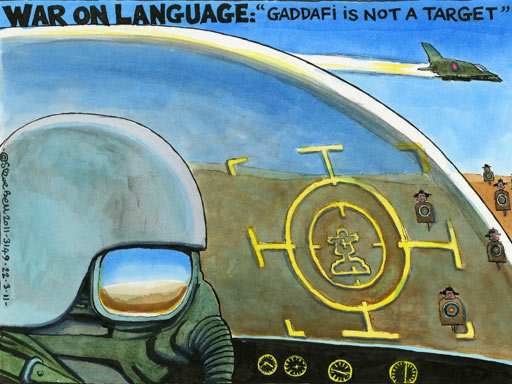
Most importantly, there appears to be no clarity on the goals of the air attacks on Libya. The British and American military leaderships claim that the removal of Colonel Gaddafi is not the aim of the air strikes–and indeed not within the scope of the Security Council resolution–but their political leaderships assert that regime change is indeed the goal. Responding to the attacks, the Libyan regime has said that it would arm civilians to fight against ‘crusader colonialists’–this could lead to a prolonged conflict were the regime to be deposed as what is left of his forces and supporters launch a bloody civil war. A civil war on the footsteps of Europe could lead to a flood of refugees and may well pave the way to occupation. Alternatively, in the case of a stalemate, Benghazi and eastern Libya may turn into a Western protectorate.
Create a free website or blog at WordPress.com.
Entries and comments feeds.
